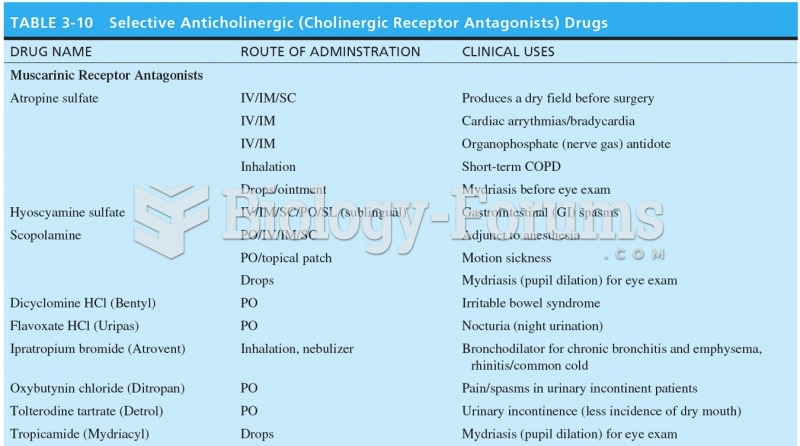|
|
|
Inotropic therapy does not have a role in the treatment of most heart failure patients. These drugs can make patients feel and function better but usually do not lengthen the predicted length of their lives.
There are immediate benefits of chiropractic adjustments that are visible via magnetic resonance imaging (MRI). It shows that spinal manipulation therapy is effective in decreasing pain and increasing the gaps between the vertebrae, reducing pressure that leads to pain.
Always store hazardous household chemicals in their original containers out of reach of children. These include bleach, paint, strippers and products containing turpentine, garden chemicals, oven cleaners, fondue fuels, nail polish, and nail polish remover.
Asthma is the most common chronic childhood disease in the world. Most children who develop asthma have symptoms before they are 5 years old.
Eat fiber! A diet high in fiber can help lower cholesterol levels by as much as 10%.
 A client is having an endoscopy performed by a physician who views the upper gastrointestinal intern
A client is having an endoscopy performed by a physician who views the upper gastrointestinal intern
 First-pass effect: (a) drugs are absorbed; (b) drugs enter hepatic portal circulation and go directl
First-pass effect: (a) drugs are absorbed; (b) drugs enter hepatic portal circulation and go directl





